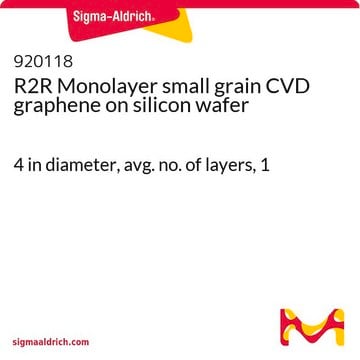647675
Silicon
wafer (single side polished), <100>, P-type, contains boron as dopant, diam. × thickness 2 in. × 0.5 mm
Synonym(s):
Silicon element
About This Item
Recommended Products
form
crystalline (cubic (a = 5.4037))
wafer (single side polished)
contains
boron as dopant
diam. × thickness
2 in. × 0.5 mm
bp
2355 °C (lit.)
mp
1410 °C (lit.)
density
2.33 g/mL at 25 °C (lit.)
semiconductor properties
<100>, P-type
SMILES string
[Si]
InChI
1S/Si
InChI key
XUIMIQQOPSSXEZ-UHFFFAOYSA-N
Looking for similar products? Visit Product Comparison Guide
Related Categories
Application
Packaging
Physical properties
Storage Class Code
13 - Non Combustible Solids
WGK
nwg
Flash Point(F)
Not applicable
Flash Point(C)
Not applicable
Personal Protective Equipment
Certificates of Analysis (COA)
Search for Certificates of Analysis (COA) by entering the products Lot/Batch Number. Lot and Batch Numbers can be found on a product’s label following the words ‘Lot’ or ‘Batch’.
Already Own This Product?
Find documentation for the products that you have recently purchased in the Document Library.
Customers Also Viewed
Our team of scientists has experience in all areas of research including Life Science, Material Science, Chemical Synthesis, Chromatography, Analytical and many others.
Contact Technical Service







